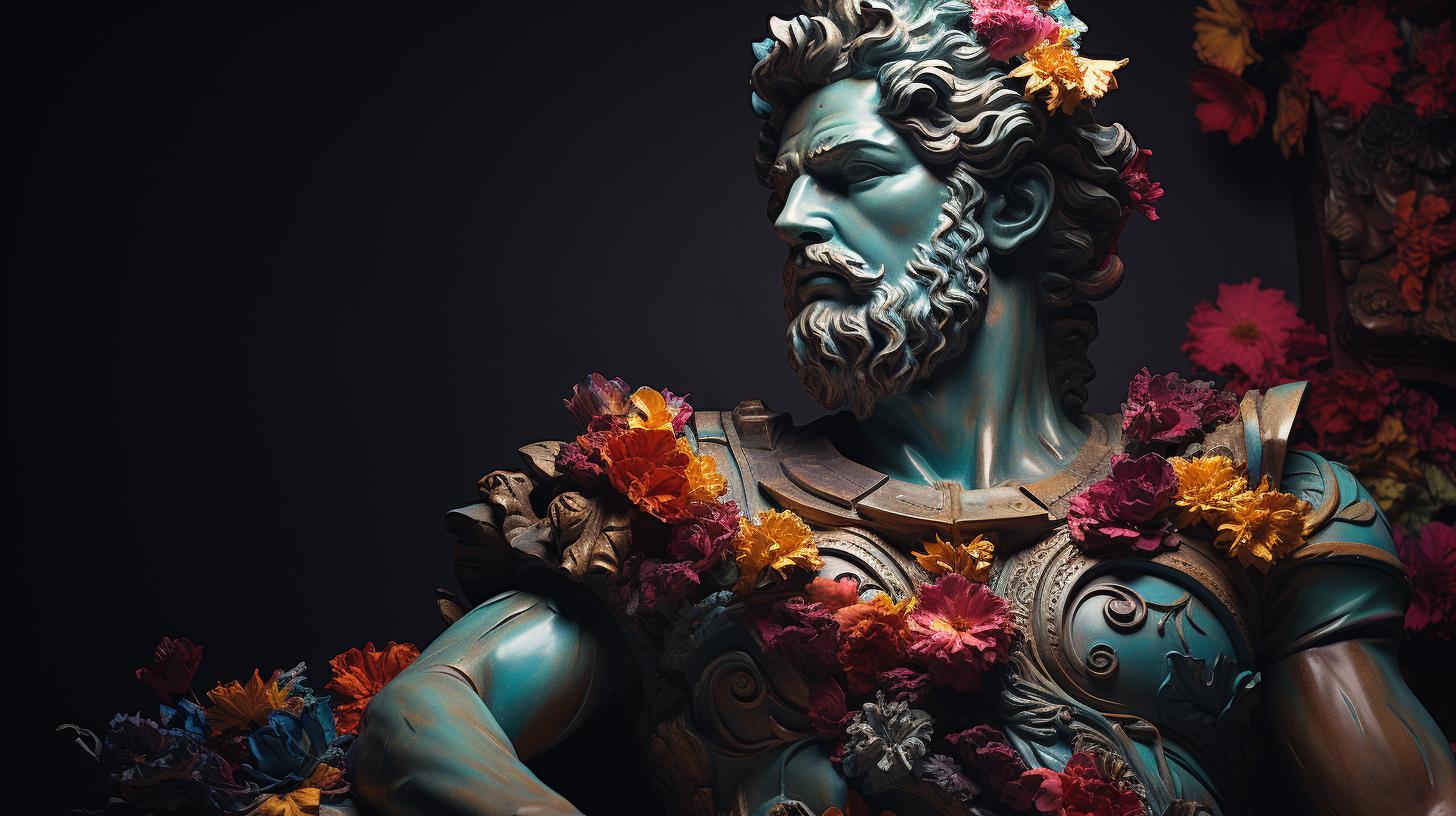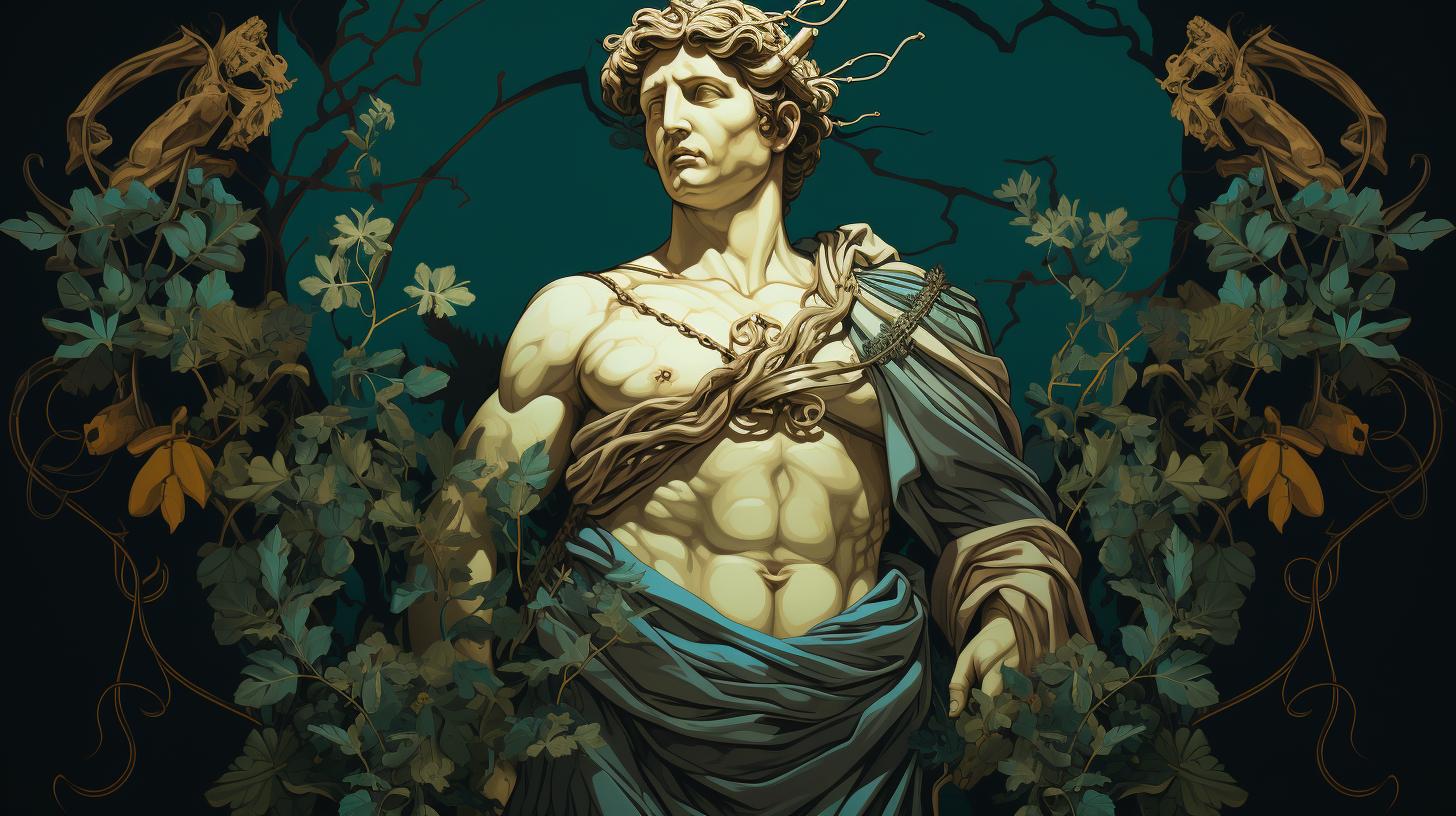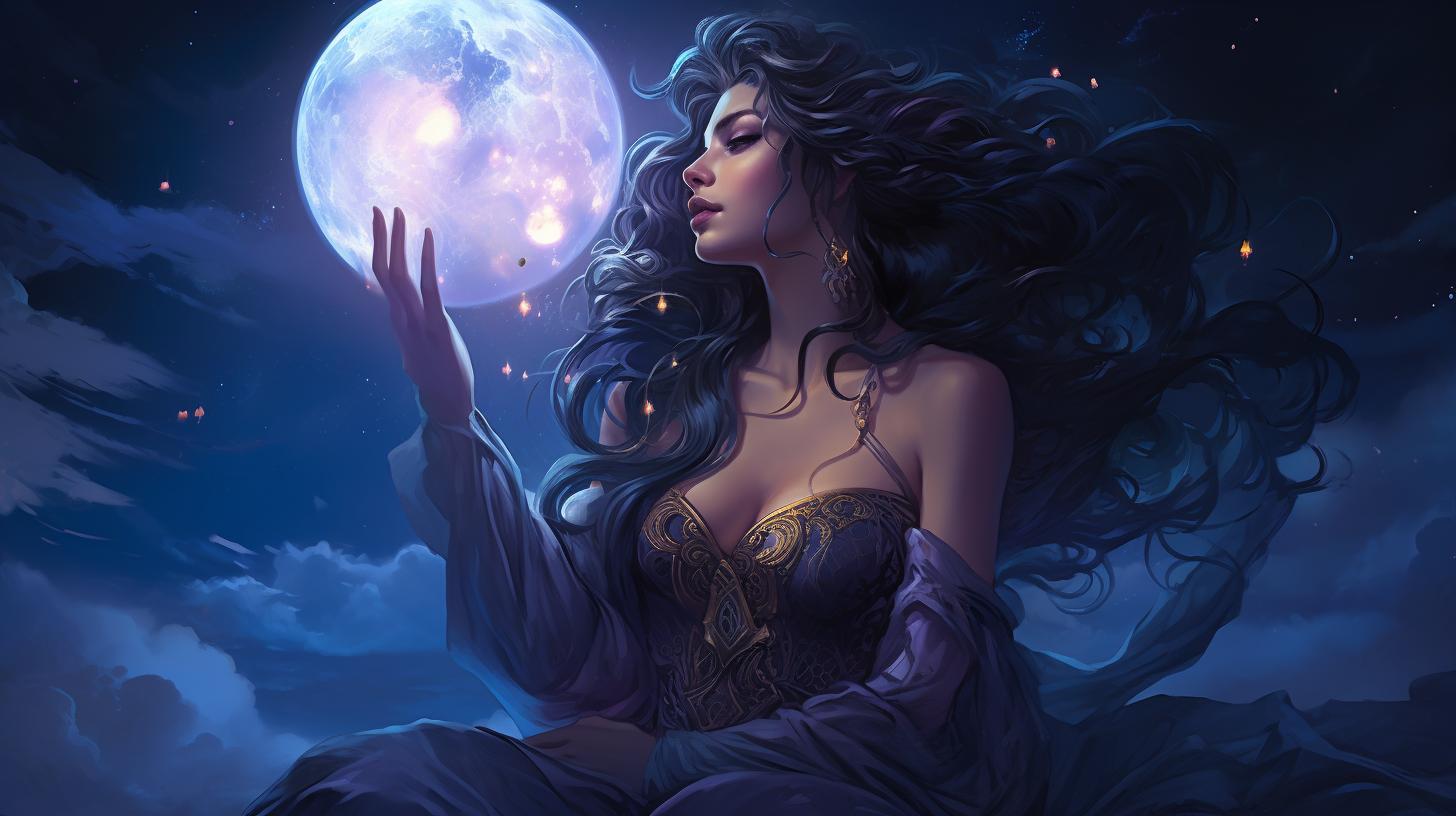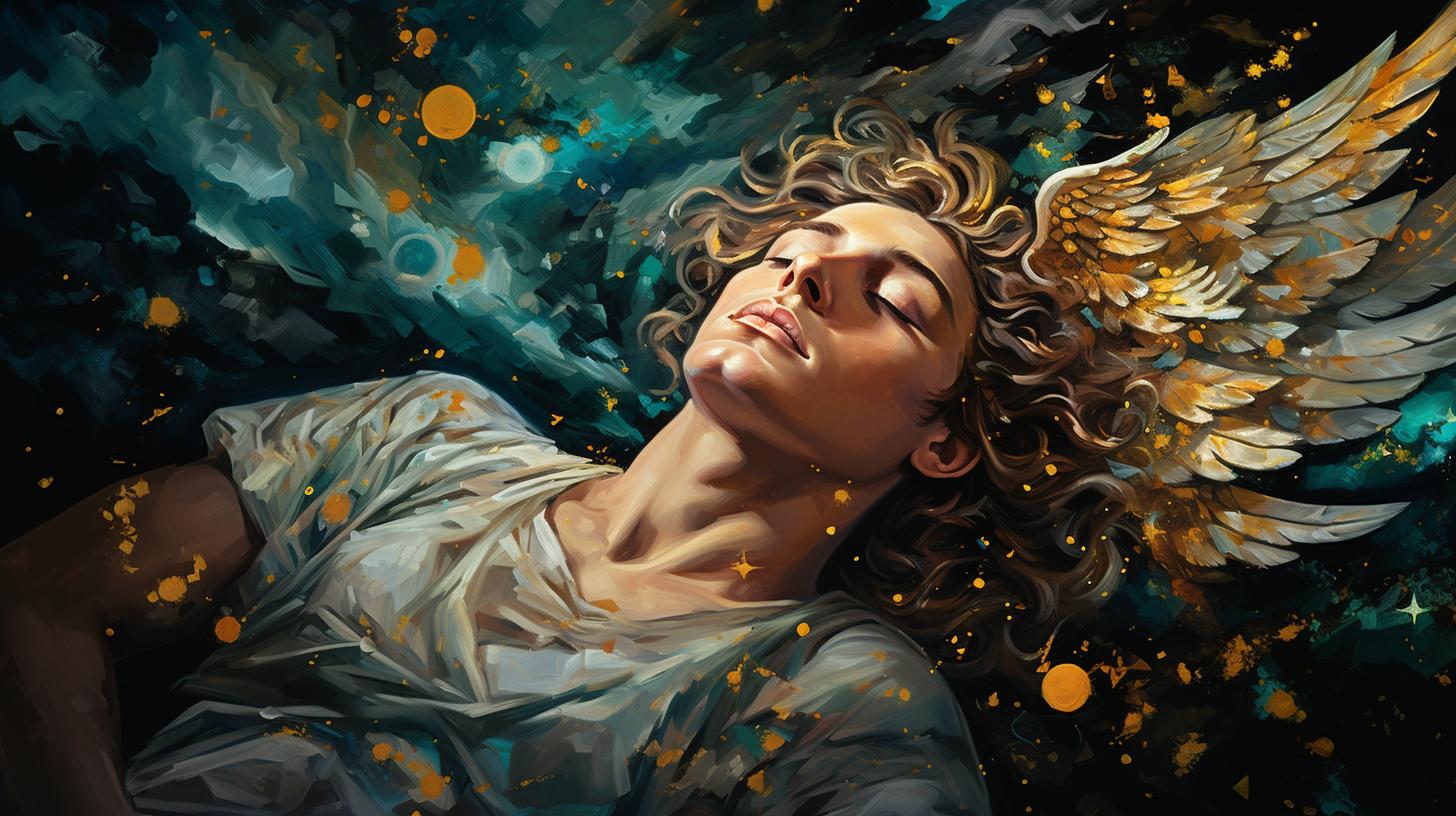Discover the Powerful Legacy of Bellona: Roman Goddess of War
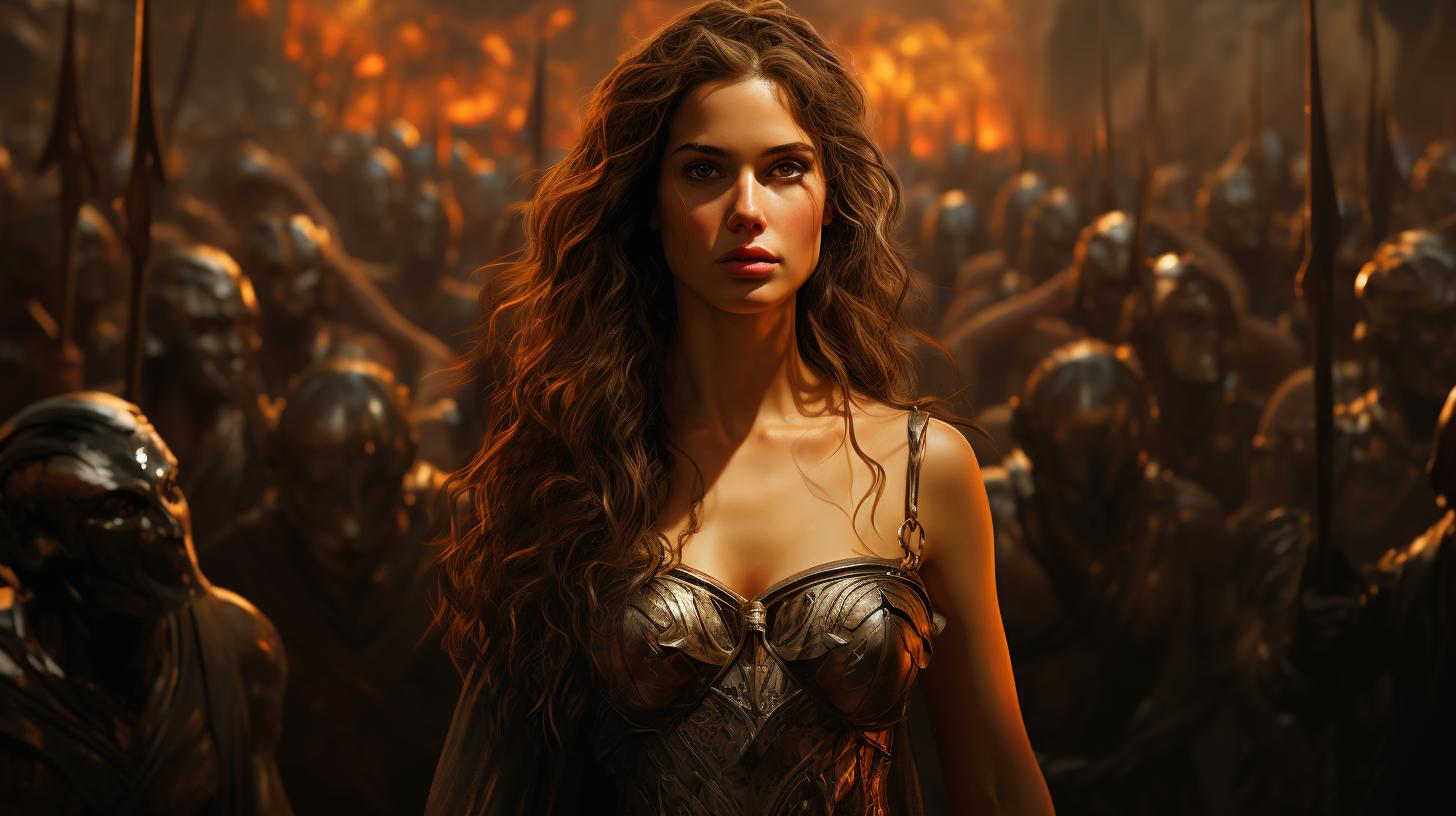
Bellona, the Roman goddess of war, holds a captivating place in ancient mythology and continues to intrigue scholars and enthusiasts alike. As a prominent figure associated with Mars, the god of war, Bellona embodies the power and intensity of battle.
Throughout history, she has been depicted through various artistic representations and worshipped fervently in ancient Rome. Today, her influence can still be seen in modern interpretations of war and power, reminding us of the enduring legacy of this formidable goddess.
Join us on a journey to uncover the fascinating mythology and significance of Bellona in Roman culture.
The Origins of Bellona: Exploring the Ancient Roman Goddess
Welcome to the captivating world of Bellona, the ancient Roman goddess of war. In this section, we will delve into the mythological background surrounding Bellona and her significance in Roman culture.
The Mythological Background: Bellona in Roman Culture
In Roman mythology, Bellona held a prominent role as the personification of war and the protectress of the Roman state. She embodied the ferocity and strength required in times of conflict, representing the Roman ideal of military might and power.
Worshipped alongside other deities in the Roman pantheon, Bellona played a vital role in Roman society. She evoked feelings of valor and determination among Roman soldiers, instilling them with a sense of invincibility on the battlefield.
Bellona’s Association with Mars: God of War
Bellona’s close association with Mars, the Roman god of war, further solidified her importance in the Roman belief system. Mars, known for his fierce nature and strategic prowess, was often depicted alongside Bellona in artwork and revered as her divine counterpart.
As the sister and companion of Mars, Bellona represented the uncontrollable aspects of war, while Mars symbolized the disciplined military strategy. Together, they formed a formidable force that inspired both fear and reverence in the hearts of Romans.
Representations of Bellona in Ancient Art: Rembrandt, Jean-François Lagrénée, and more
The artistic representations of Bellona in ancient Rome offer us invaluable insight into how she was perceived and worshipped during that time. Renowned artists like Rembrandt and Jean-François Lagrénée captured her essence in their masterpieces, immortalizing her fierce countenance and commanding presence.
Whether depicted in armor, holding a sword, or accompanied by Mars himself, these artistic renditions emphasized Bellona’s role as a symbol of military power and showcased her importance in Roman mythology and culture.
Exploring these diverse artistic interpretations allows us to better understand the impact and lasting legacy of Bellona, solidifying her status as one of the most prominent goddesses of war in ancient Rome.
- Rembrandt’s ‘Bellona’ – This famous painting portrays Bellona with a determined expression, exuding strength and power.
- Jean-François Lagrénée’s ‘Bellona’ – Lagrénée’s depiction captures the intensity of Bellona’s character, with her helmet and sword prominently displayed.
- Other artists’ portrayals – Throughout history, numerous artists have sought to capture Bellona’s essence, each offering their unique interpretation of the goddess.
Bellona’s Symbolism and Attributes in Warfare
Discover the powerful symbolism and attributes associated with Bellona, the Roman goddess of war.
Throughout history, Bellona has been depicted with various symbols that represent her immense power and influence during times of conflict.
The Helmet and Sword: Icons of Bellona’s Power
One of the most prominent symbols of Bellona’s authority is the helmet and sword. Representing her role as the goddess of war, the helmet signifies protection and strength, while the sword represents her formidable offensive capabilities.
These iconic symbols serve as a reminder of Bellona’s unwavering determination and the weapons of choice for those who seek victory in battle.
The Shield: Bellona’s Defensive Might in Battle
Another significant attribute of Bellona is the shield, which embodies her defensive prowess on the battlefield. The shield represents her ability to protect warriors and inspire them to defend their cause.
It serves as a symbol of resilience and serves as a powerful visual reminder of the Roman army’s reliance on Bellona’s presence to shield them from harm.
Bloodlust and Destruction: Bellona’s Dark Side
While Bellona is often associated with courage and strategic warfare, she also possesses a darker aspect. Known for her bloodlust and destruction, Bellona embodies the chaos and brutality that can arise during wartime.
This aspect of her persona serves as a reminder of the devastating consequences of war and the potential for violence to consume even the most powerful forces.
Explore the complex symbolism and attributes associated with Bellona and gain a deeper understanding of the multifaceted nature of warfare in ancient Rome. From the iconic helmet and sword to the defensive might of the shield, Bellona’s role in warfare is a testament to the complexities and challenges faced by soldiers throughout history.
Bellona’s Worship and Influence in Ancient Rome
In ancient Rome, the worship of Bellona, the fierce goddess of war, played a significant role in the religious and cultural life of the people. From temples dedicated to her to elaborate rituals and festivals, Bellona held a central position in the hearts and minds of the Romans.
Let’s explore the various aspects of Bellona’s worship and her profound influence on ancient Roman society.
The Temple of Bellona: A Sacred Space for Devotion
At the heart of Bellona’s worship stood the magnificent Temple of Bellona, a sacred space dedicated to her cult. Situated in Rome, this temple served as the epicenter of devotion, where worshippers would gather to seek her blessings and protection in times of war.
The sanctuary was adorned with statues, reliefs, and symbols depicting Bellona, showcasing her power and might.
Rituals and Festivals: Honoring Bellona in Ancient Roman Society
The reverence for Bellona was expressed through a series of rituals and festivals celebrated throughout the year. These ceremonies were deeply ingrained in the fabric of Roman society and held great importance in strengthening the collective spirit and morale of the people in times of conflict.
The rituals involved the offering of sacrifices, chants, processions, and dramatic reenactments of battles, symbolizing the devotion and dedication to the goddess of war.
The Priests of Bellona: Guardians of her Worship
The worship of Bellona was overseen by a special order of priests known as the Bellonarii, who acted as custodians of her cult. These priests devoted their lives to the service of Bellona, maintaining the temple, conducting ceremonies, and offering guidance to worshippers.
They were held in high esteem by the Roman society, and their role in preserving the traditions and rituals of Bellona’s worship was vital in ensuring the continuity of her influence.
As we delve deeper into the worship and influence of Bellona in ancient Rome, we begin to grasp the profound significance she held in the lives of the Romans. The Temple of Bellona stood as a holy sanctuary, while rituals and festivals brought the community together in reverence.
The priests of Bellona played a crucial role in upholding her tradition. Together, these elements form a rich tapestry of devotion and belief surrounding the fierce goddess of war.
Bellona and Roman Military History
Bellona, the fearsome Roman goddess of war, played a significant role in shaping the military history of ancient Rome. From inspiring legendary conquerors to influencing strategic military operations, Bellona’s presence loomed large on the battlefield.
Bellona’s Role in Roman Conquests: Romulus and Remus
One of the earliest references to Bellona’s intervention in Roman military conquests can be traced back to the legendary tale of Romulus and Remus. According to mythology, Romulus, the founder of Rome, sought Bellona’s divine favor and guidance in his ambitious quest for expansion.
It is said that Bellona assisted Romulus in his triumphs and ensured Rome’s dominance in the region.
The March of Bellona: Exploring the Circus Flaminius
Within the heart of Rome, the Circus Flaminius served as a significant venue where Bellona’s influence manifested during military parades and triumphal processions. As armies returned from victorious campaigns, they would march down the Circus Flaminius, paying homage to Bellona and showcasing their triumphs to the Roman populace.
These grand displays not only celebrated military achievements but also reinforced Bellona’s role as the patroness of war.
Appius Claudius Caecus: A Notable Patron of Bellona
During the Roman Republic, Appius Claudius Caecus emerged as a prominent political figure and a devoted patron of Bellona. He believed in the importance of honoring Bellona’s guidance in military endeavors and actively promoted her worship.
As a general, Claudius Caecus strategically invoked Bellona’s name to inspire soldiers and rally their spirits during times of conflict, creating a strong connection between the goddess and the perseverance of the Roman legions.
In conclusion, Bellona’s influence on Roman military history was vast and profound. From assisting legendary conquerors to being celebrated in triumphant processions, and even garnering the support of influential political figures such as Appius Claudius Caecus, Bellona left an indelible mark on Rome’s military prowess.
Her presence on the battlefield and the reverence she commanded further solidified her status as the revered goddess of war.
Modern Interpretations and Legacy of Bellona
The enduring legacy of Bellona, the Roman goddess of war, can be seen in her influence on war and power in contemporary culture. Her fierce and fearless persona continues to captivate artists, writers, and filmmakers, who draw inspiration from her symbolism and mythology.
Let’s explore the various ways in which Bellona’s legacy lives on in the 21st century.
Bellona’s Influence on War and Power in Contemporary Culture
In today’s world, Bellona’s influence can be observed in the military and political realms. Her image and attributes are often incorporated into military insignia and emblems, symbolizing strength and determination. Additionally, many military units and organizations adopt her name, emphasizing the association with war and victory.
Bellona serves as a symbol of power and resilience, inspiring leaders and warriors alike to embody her unwavering spirit in their pursuits.
Bellona’s Symbolism in Art and Literature Today
Bellona’s fierce nature and symbolisms continue to resonate with artists and writers in the modern era. In contemporary art, her image is often depicted in bold and dynamic compositions, representing the power struggle inherent in war.
In literature, authors explore her character and attributes within the context of themes such as conflict, bravery, and the human condition. Bellona’s symbolism serves as a powerful muse for creative minds, allowing them to delve into the complexities of war and its impact on society.
Remembering Bellona: Her Relevance in the 21st Century
Despite the passage of time, Bellona remains a relevant and thought-provoking figure in the 21st century. Her role as the goddess of war invites reflection on the ongoing presence of conflict in our world and the implications it holds for humanity.
Bellona reminds us to confront the darker aspects of our nature and to strive for peace and unity amidst turmoil. As we navigate the complexities of modern society, Bellona’s legacy serves as a constant reminder of the consequences and responsibilities that come with the pursuit of power and victory.
…













